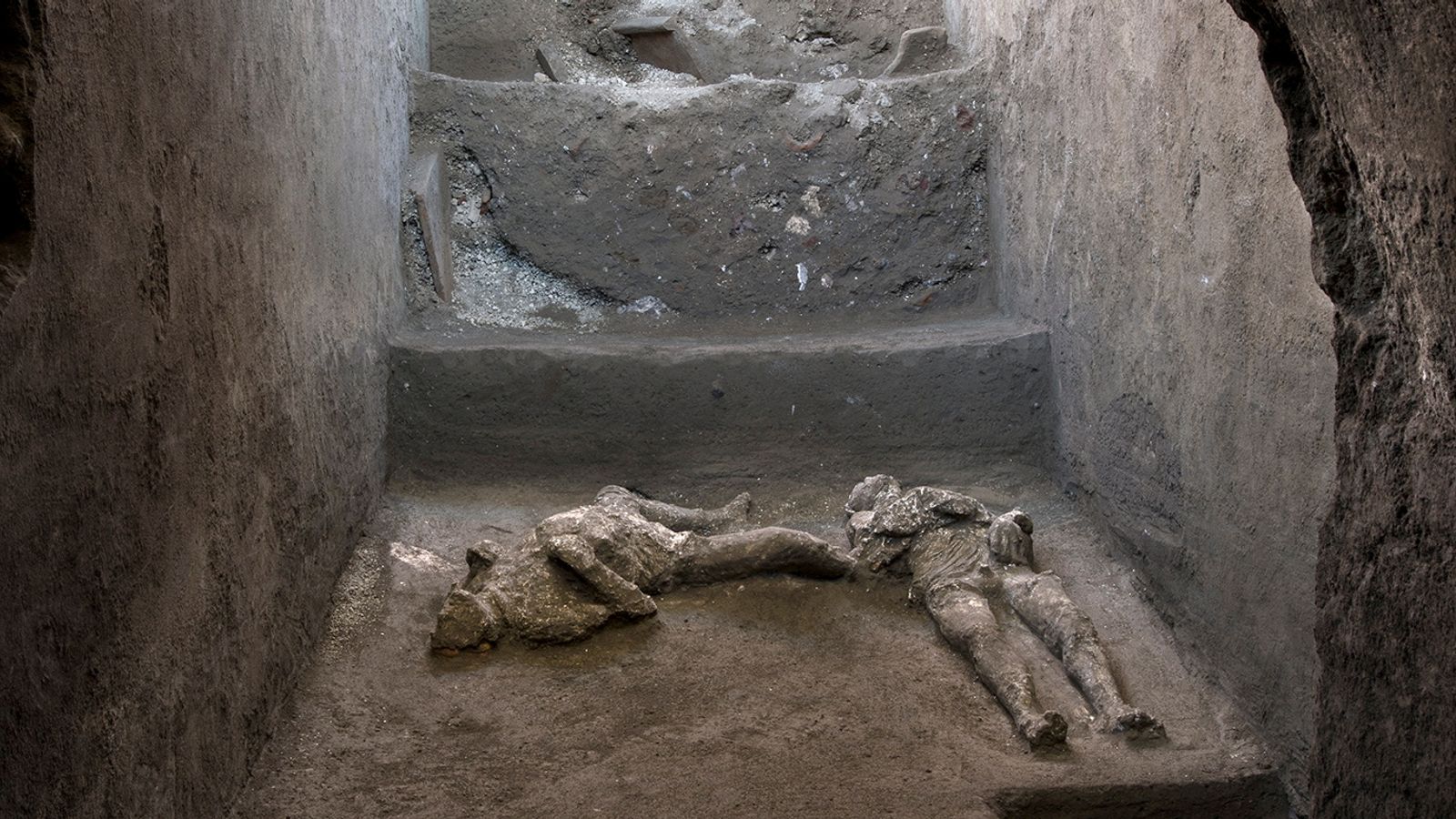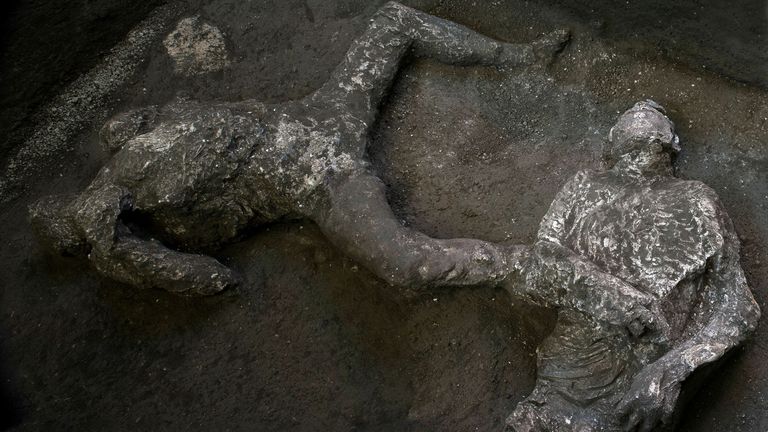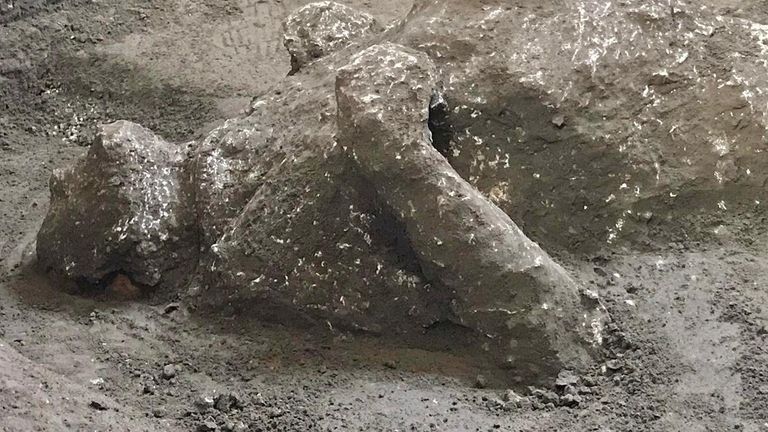
[ad_1]
Archaeologists have discovered the remains of two men killed in the volcanic eruption that destroyed the ancient Roman city of Pompeii nearly 2,000 years ago.
The find was made in an excavation carried out during the coronavirus pandemic, the Italian culture ministry said.
One of the victims was believed to be a man of high status, between 30 and 40 years old, who still had traces of a woolen cape under his neck.
The second, who was probably between 18 and 23 years old, was wearing a tunic and had several crushed vertebrae, indicating that he had been a slave doing heavy labor.
The remains were found in an underground chamber about 700 m (2,297 ft) northwest of the center of ancient Pompeii, in the area of a large villa where some archaeological discoveries have already been made.
The men’s teeth and bones were preserved and the gaps left by their soft tissues were filled with plaster that was allowed to harden and then excavated to show the outline of their bodies.
Pompeii director Massimo Osanna said the two victims may have been seeking shelter when they were engulfed by deadly clouds of ash, rock and toxic gas.
Pompeii, 14 miles (23 km) southeast of Naples, was home to about 13,000 people in AD 79 when nearby Mount Vesuvius erupted, burying the city and freezing it in time.
The ruins were not discovered until the 16th century and organized excavations began around 1750.

